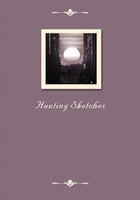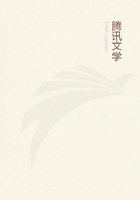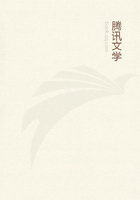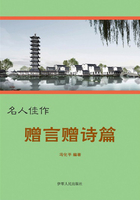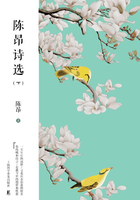9. The subjection of them who institute a commonwealth amongst themselves, is no less absolute, than the subjection of servants. And therein they are in equal estate; but the hope of those is greater than the hope of these. For he that subjecteth himself uncompelled, thinketh there is reason he should be better used, than he that doth it upon compulsion; and coming in freely, calleth himself, though in subjection, a FREEMAN; whereby it appeareth, that liberty is not any exemption from subjection and obedience to the sovereign power, but a state of better hope than theirs, that have been subjected by force and conquest. And this was the reason, that the name that signifieth children, in the Latin tongue is liberi, which also signifieth freemen. And yet in Rome, nothing at that time was so obnoxious to the power of others, as children in the family of their fathers. For both the state had power over their life without consent of their fathers; and the father might kill his son by his own authority, without any warrant from the state. Freedom therefore in commonwealths is nothing but the honour of equality of favour with other subjects, and servitude the estate of the rest. A freeman therefore may expect employments of honour, rather than a servant. And this is all that can be understood by the liberty of the subject. For in all other senses, liberty is the state of him that is not subject.
10. Now when a father that hath children, hath servants also, the children (not by the right of the child, but by the natural indulgence of the parents) are such freemen. And the whole consisting of the father or mother, or both, and of the children, and of the servants, is called a FAMILY; wherein the father or master of the family is sovereign of the same; and the rest (both children and servants equally) subjects. The same family if it grow by multiplication of children, either by generation or adoption; or of servants, either by generation, conquest, or voluntary submission, to be so great and numerous, as in probability it may protect itself, then is that family called a PATRIMONIAL KINGDOM, or monarchy by acquisition; wherein the sovereignty is in one man, as it is in a monarch made by political institution. So that whatsoever rights be in the one, the same also be in the other. And therefore I shall no more speak of them, as distinct, but as of monarchy in general.
11. Having shewed by what right the several sorts of commonwealths, democracy, aristocracy, and monarchy, are erected; it followeth to shew by what right they are continued. The right by which they are continued, is called the right of succession to the sovereign power; whereof there is nothing to be said in a democracy, because the sovereign dieth not, as long as there be subjects alive; nor in an aristocracy, because it cannot easily fall out, that the optimates should every one fail at once; and if it should so fall out, there is no question, but the commonwealth is thereby dissolved. It is therefore in a monarchy only, that there can happen a question concerning the succession.
And first: forasmuch as a monarch, which is absolute sovereign, hath the dominion in his own right, he may dispose thereof at his own will. If therefore, by his last will, he shall name his successor, the right passeth by that will.
12. Nor if the monarch die without any will concerning the succession declared, is it therefore to be presumed that it was his will, his subjects which are to him as his children and servants, should return again to the state of anarchy, that is, to war and hostility; for that were expressly against the law of nature, which commandeth to procure peace, and to maintain the same. It is therefore to be conjectured with reason, that it was his intention to bequeath them peace, that is to say, a power coercive, whereby to keep them from sedition amongst themselves; and rather in the form of monarchy, than any other government; forasmuch as he, by the exercise thereof in his own person, hath declared that he approveth of the same.
13. Further, it is to be supposed his intention was, that his own children should be preferred in the succession, (when nothing to the contrary is expressly declared) before any other. For men naturally seek their own honour, and that consisteth in the honour of their children after them.
14. Again, seeing every monarch is supposed to desire to continue the government in his successors, as long as he may; and that generally men are endued with greater parts of wisdom and courage, by which all monarchies are kept from dissolution, than women are; it is to be presumed, where no express will is extant to the contrary, he preferreth his male children before the female. Not but that women may govern, and have in divers ages and places governed wisely, but are not so apt thereto in general as men.
15. Because the sovereign power is indivisible, it cannot be supposed, that he intended the same should be divided, but that it should descend entirely upon one of them, which is to be presumed should be the eldest, assigned thereto by the lot of nature; because he appointed no other lot for the decision thereof. Besides, what difference of ability soever there may be amongst the brethren, the odds shall be adjudged to the elder, because no subject hath authority otherwise to judge thereof.
16. And for want of issue in the possessor, the brother shall be the presumed successor. For by the judgment of nature, next in blood is next. in love; and next in love is next to preferment.
17. And as the succession followeth the first monarch, so also it followeth him or her that is in possession; and consequently, the children of him in possession shall be preferred before the children of his father or predecessor.

